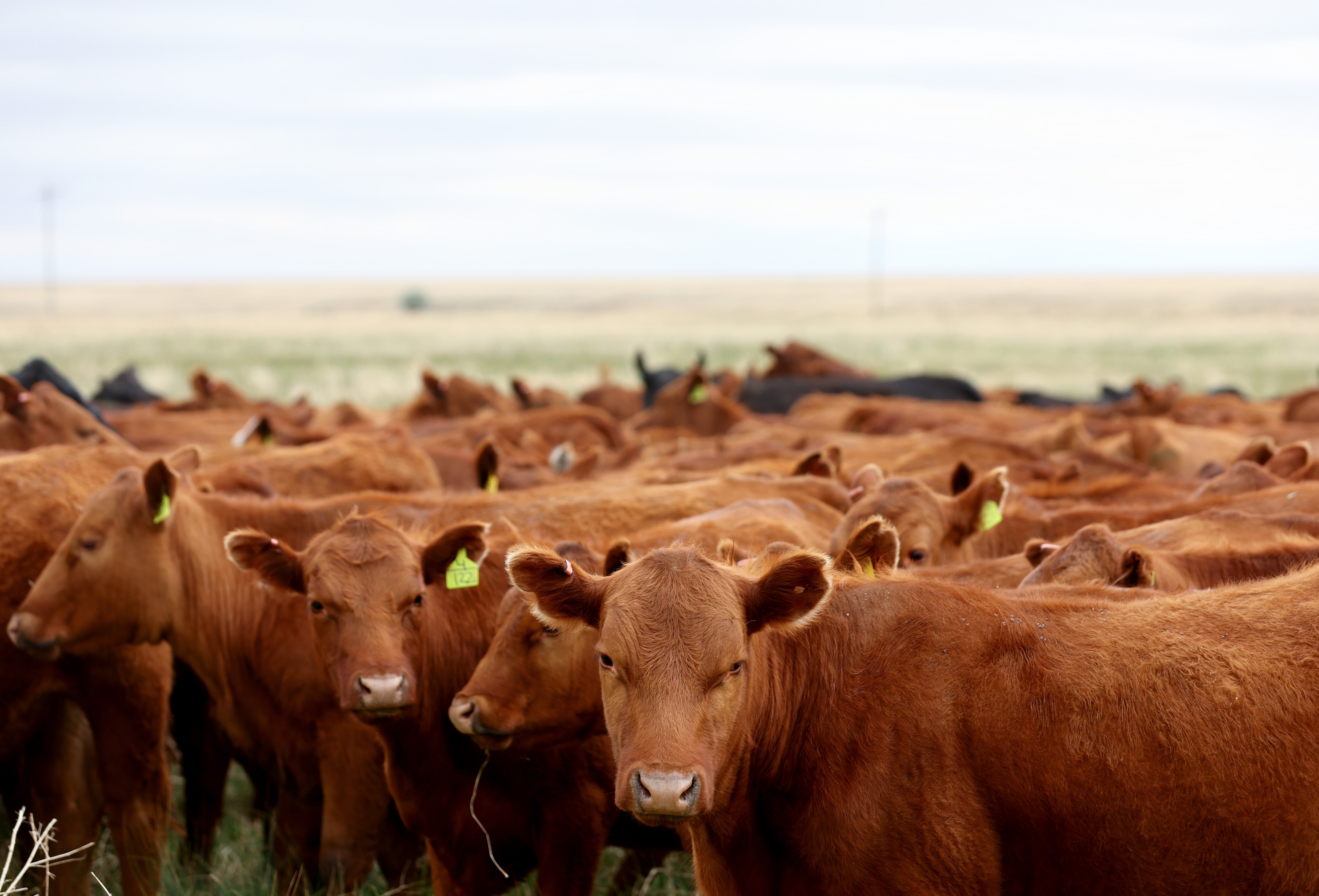US shuts Mexico border to live cattle over flesh-eating parasite fears
Mexico’s top agricultural official says she disagrees with the measures but is confident an agreement can be reached to resume trade

Donald Trump’s administration has cancelled all livestock imports of cattle, horses and bison across the Mexican border over concerns of a flesh-eating parasite, just months after an agreement to resume the trade.
Agriculture secretary Brooke Rollins announced the closure on Sunday evening, citing the spread of the New World screwworm (NWS). She suggested the closure would be reassessed monthly.
The announcement came after the United States Department of Agriculture (USDA) said the pest had been detected in Oaxaca and Veracruz, about 700 miles from the U.S. border.
“The protection of our animals and safety of our nation's food supply is a national security issue of the utmost importance,” Ms Rollins said.
“This is not about politics or punishment of Mexico, rather it is about food and animal safety.
“The last time this devastating pest invaded America, it took 30 years for our cattle industry to recover. This cannot happen again.”
The U.S. and Mexico last month reached an agreement on the handling of the damaging pest, which can infest livestock and wildlife and carry maggots that burrow into the skin of living animals, causing serious and often fatal damage.
The agreement came after the U.S. shut down this trade across the border in November, lifting it three months later in February following the new agreement.
The U.S. agriculture agency said the efforts so far to maintain the open border were not sufficient, and acknowledged “an economic impact” on both countries due to the suspension.
“There has been unacceptable northward advancement of NWS and additional action must be taken to slow the northern progression of this deadly parasitic fly,” the USDA said.
Rollins’ Mexican counterpart, Julio Berdegue, immediately rebuked the announcement and suggested she had only agreed to a 15-day closure with the U.S.
“We don't agree with this measure, but we're confident we'll reach an agreement sooner rather than later,” she wrote on X.
Attempts to eradicate the threat posed by the parasitic flies date back decades. The most successful effort in the 1960s and early 1970s involved releasing hundreds of millions of sterile adult flies that would mate with the females, ultimately preventing them from laying viable eggs.
But there was nevertheless a major outbreak in Texas in 1976 that affected more than 1.4 million cattle and hundreds of thousands of sheep and goats.
USDA analysis suggests that if such an outbreak were to happen again, it would cost the state’s economy $1.8 billion.
Join our commenting forum
Join thought-provoking conversations, follow other Independent readers and see their replies
Comments